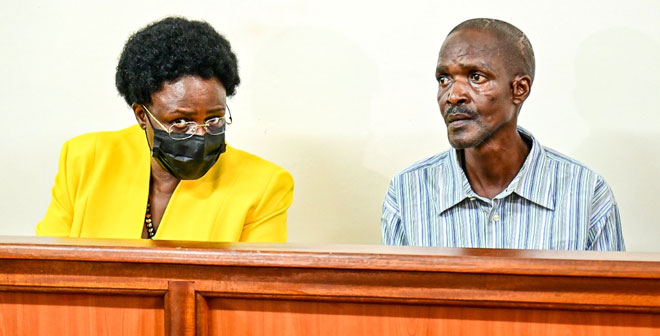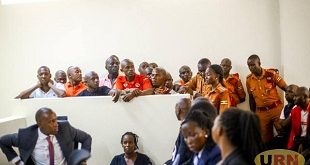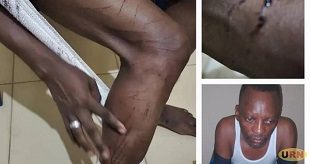
Kampala, Uganda | THE INDEPENDENT | The Anti-Corruption Court in Kampala has banned members of the media and the general public from taking photographs and videos from the ongoing trial of officials involved in the diversion of iron sheets meant for the Community Empowerment Program of Karamoja sub-region.
The order was issued this morning by Justice Jane Okuo Kajuga following a successful application by the lawyers representing Karamoja Affairs Minister Mary Gorreti Kitutu, her brother Michael Naboya Kitutu and her Personal Assistant Joshua Abaho with whom she is jointly charged.
The Prosecution alleges that between June 2022 and January 2023 at the office of the Prime Minister’s Stores in Namanve, Mukono District, Kitutu caused a loss of 9,000 prepainted Iron sheets by diverting them from the intended purpose of benefiting the Karamoja Community Empowerment Program to her own benefit and to the benefit of third parties.
It is also alleged that while at the same place, in January 2023, Kitutu and her Personal Assistant diverted 5,500 iron sheets for unrelated purposes and they ended up being received by third parties yet he was charged with the duty of keeping them in good and safe custody as the receiver.
Prosecution adds that Kitutu’s brother received 100 pieces of iron sheets while in Namisindwa district which was part of those that the Minister and Abaho had connived to divert.
On Monday, the accused persons formally took a plea having been committed to face trial in the High Court. However, their lawyers led by Dr James Akampumuza and Paul Kuteesa objected to the hearing of the case in the presence of journalists saying the media has published biased stories which somehow is affecting their right to a fair trial.
He said while lawyers believe in the impartiality of the Court, human nature requires that the court cannot be bribed to be abrased with current affairs and certainly read the same stories as lawyers.
According to Akampumuza, in order to avoid prejudice, and to avoid mob justice against their clients, Court reporters should be restricted to reporting to only the events that have happened in court and not to engage in what he described as biased conclusions. He said they strongly object to the use of cameras in this case except if they are specific for court use.
Akampumuza said that their concern is that journalists take pictures and videos and go to distort them which he said is contempt of court and also affects the work of not only lawyers but also the presiding judicial officer. The Prosecution led by State Attorney Jonathan Muwaganya agreed that there should be fair reporting about the case.
Muwaganya, however, disagreed with the defence on their prayers saying there is no evidence to show that journalists have been reporting with bias, saying they have no specific media story to show that journalists are reporting with bias. Muwaganya said it is not true that any manner of reporting can bias the court because the judicial oath taken by the Judges supersedes it.
Muwaganya added that the prayer for barring the cameras is not the most appropriate because it amounts to gagging the press, because journalists are entitled to disseminate information provided it is professional.
But in her ruling, Justice Kajuga said she agreed with the defence lawyers that live reporting may be prejudicial to the trial and cause interference and undue pressure, and in the end, result in a decision that is not generic. Kajuga said as such, the court has to create a good atmosphere where the truth has to come out mostly in trials of the public in nature and that an accused person is presumed to be innocent unless proven to be guilty.
She said, all reporting of the case must be factual, must be a proper representation of what has happened in court and must not conflict with the innocence of the accused persons. But to Kajuga, this will only be done by allowing journalists in court to only use gadgets that can relay information using audio, and these gadgets will also have to be screened by security prior to their usage.
The Court appointed three assessors who are ordinary people but with average understanding, namely Rehema Babirye, Lydia Najjuko and Lawrence Mukasa. These have been sworn in to advise the court on whether to convict or acquit the accused persons at the conclusion of the full trial which will commence on August 11, 2023.
****
URN
 The Independent Uganda: You get the Truth we Pay the Price
The Independent Uganda: You get the Truth we Pay the Price


